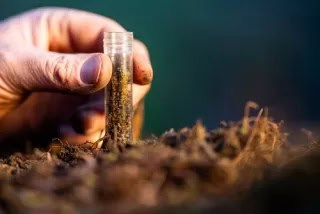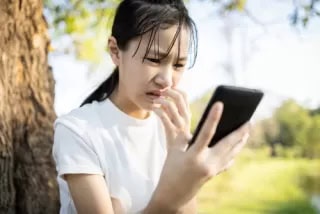![]() Marianne Brandon Ph.D.
Marianne Brandon Ph.D.
The Future of Intimacy
GENETICS
When your neighbor plays God in their garage.
KEY POINTS
- Ordinary people can now engineer genes and experiment on themselves and the environment outside oversight.
- DIY biotech brings hope for health, agency, and creative problem-solving.
- Real incidents reveal unsettling risks, from failed self-experiments to biosecurity threats.
- Trust of our neighbors is increasingly required to our shared human experience.
The do-it-yourself (DIY) biohack movement is here, and it’s turning science into a communal experiment. High schoolers in Seattle have engineered bacteria in science fairs, while biohackers like Josiah Zayner have livestreamed self-injections of homemade gene therapies, hoping to build muscle or treat viruses. Further, his company sells a Green Tree Frog Gene Therapy Kit that includes frogs, cages, food, and all necessary materials and instructions to genetically modify frogs at home. The kits simply require buyers to complete a safety quiz before purchase. Similarly, hobbyists can clone DNA with mail-order kits, and community labs exist in at least 15 states that support similar experimentation. DIY biotech makes the power to alter life accessible to anyone with a Wi-Fi connection.

Source: William Edge/Shutterstock
Without institutional review boards or regulatory bodies, there’s little accountability, transparency, or quality control in many DIY bio labs. This creates vulnerabilities not only for individual experimenters but also for communities and our environment. The FBI and others have expressed concern about the potential for misuse, including the accidental creation of harmful organisms or the deliberate engineering of biological threats.
Real incidents have already exposed these risks. The psychological reality is unsettling: we must trust that others will act wisely, ethically, and safely with technology that many of us do not understand, and that could ultimately hurt us all.
For the first time, our well-being depends not just on experts or institutions, but on our neighbors and strangers, anyone who might be experimenting in the next garage. When a biohacker livestreams an untested gene therapy or a company like Ascendance Biomedical distributes DIY treatments without oversight, they’re not just risking their own health. They’re gambling with the safety of their communities, and, potentially, the world. How many people in your network do you trust with this power?
The Psychology of Biohacking
Why do some people take these risks? The psychology of DIY biotech seems complex. For some, it’s probably about empowerment and agency, taking control where traditional medicine or science feels slow. For others, it may be driven by narcissism, curiosity, a desire for fame, or an angry sense of rebellion against authority. The thrill of breaking boundaries may override concerns about consequences, especially when the risks seem abstract and are probably poorly understood. Social media amplifies this effect, rewarding bold stunts and viral experiments with attention and followers, even at the expense of caution or collective well-being.
This new reality forces us to grapple with questions about human nature. How much do we trust others to wield this power responsibly? Being human in the age of DIY biotech means living with uncertainty and interdependence on others whom we don’t know. Our safety, our health, and even our genetic future are now bound up with the choices of people we may not agree with. The future of humanity depends on how we navigate the psychology of trust, responsibility, and restraint in a world where anyone can rewrite the code of life.
References
Hewett, J., et al. (2023). Safety risks and ethical governance of biomedical applications of synthetic biology. Frontiers in Bioengineering and Biotechnology, Article 10628459. https://www.ncbi.nlm.nih.gov/pmc/articles/PMC10628459/
Landrain, T., Meyer, M., Perez, A. M., & Sussan, R. (2013). Do-it-yourself biology: challenges and promises for an open science and technology movement. Systems and Synthetic Biology, 7(3), 115–126. https://doi.org/10.1007/s11693-013-9116-4
Stasi A, Thongpravati O. Biotechnology Innovation in Do-It-Yourself (DIY) Gene Editing: A Call for a New Regulatory Framework. OBM Genetics 2024; 8(2): 238; doi:10.21926/obm.genet.2402238.
Zettler PJ, Guerrini CJ, Sherkow JS. (2019). Regulating genetic biohacking. Science. 2019 Jul 5;365(6448):34-36. doi: 10.1126/science.aax3248



